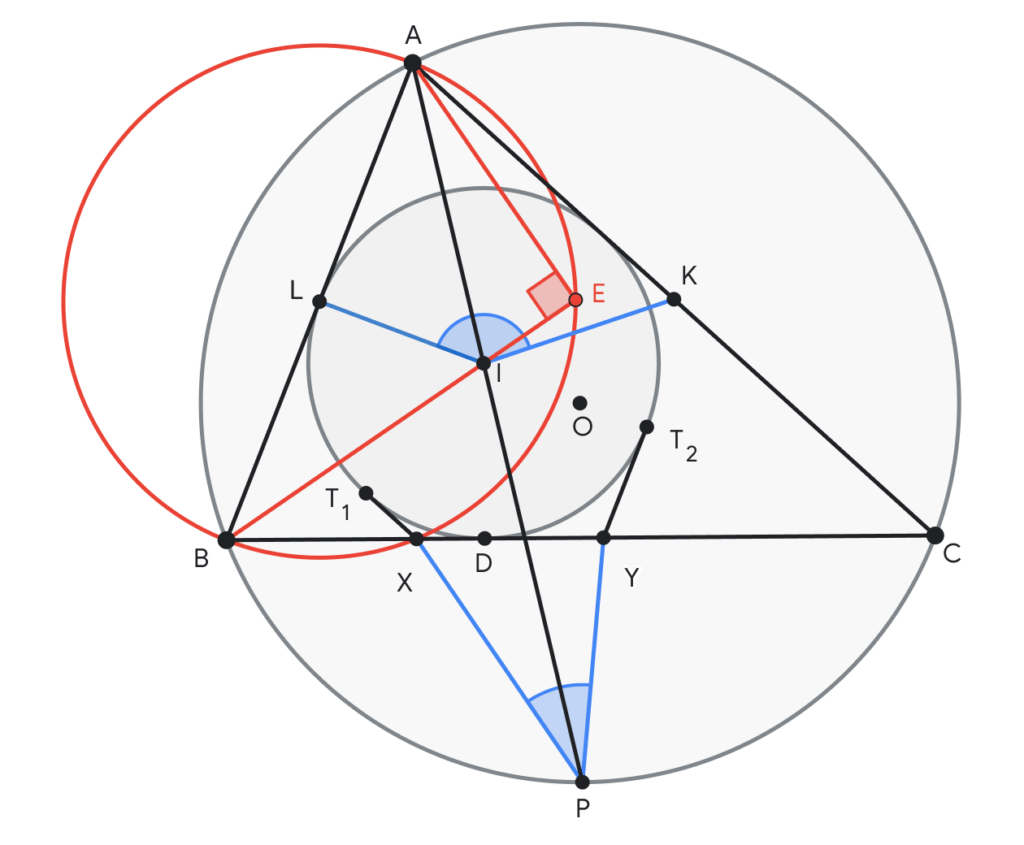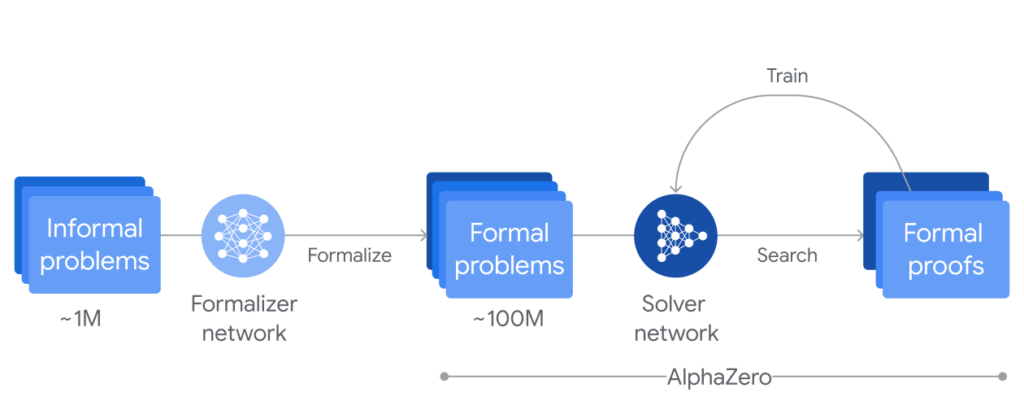Google managed to place its AI AlphaGeometry 2 and AlphaProof within a hair’s breadth of winning the gold medal at the International Mathematical Olympiad. Both programs received a silver medal, and AlphaGeometry 2 impressed with the elegance and speed of its solution.
This is a new record for artificial intelligence that Google has just broken, in a very specific field: mathematics. Its two programs AlphaProof and AlphaGeometry 2 managed to reach 28 points at the International Mathematical Olympiad (IMO) out of a possible 42, placing the AI at the level of the silver medalists of the year 2024. The threshold of 30 points would have allowed Google to enter the category of gold medalists.
To achieve these results, AlphaProof and AlphaGeometry 2 managed to solve 4 problems out of the 6 presented to the participants, including number 4, geometry. The other 3 problems in algebra and number theory fell under AlphaProof’s reasoning, including the most difficult of the competition in number theory, solved only by 5 human participants. Only the combinatorics problems have still escaped the calculations of Google’s artificial intelligences.
Speed and elegance
For Professor Sir Timothy Gowers, Fields Medallist, Patron and Gold Medallist of the IMO, whom we met during a roundtable, Google’s products exceed what he imagined possible in the field of AI: “ The fact that the program can come up with a non-obvious construction like this is very impressive, and well beyond what I thought was the state of the art. ” he confides.
Because in this competition where young minds are brought together twice to think for 4 hours and 30 minutes on 3 problems per day, it is necessary to master all aspects of mathematics to get the quintessence. During the round table, Sir Timothy Gowers repeatedly repeated how the solution proposed by AlphaGeometry 2 to problem 4 was not only correct, but also elegant. This demonstration is the highlight of the show, because while it took AlphaProof 3 days to solve some of its problems, AlphaGeometry only took 19 seconds to find a solution.
It’s impossible to deny or confirm what a Fields Medalist, the highest honor in mathematics, says, so we’ll take his word for it. At the end of the conference, Google did provide a succinct summary of AlphaGeometry’s solution to the problem, which we’ve reproduced below. The detailed solution is available at this address : the most mathematically minded of our readers will be able to judge for themselves.

AlphaGeometry2 was not a stroke of luck: this program developed by Google is a hybrid neuro-symbolic system in which the language model is based on Gemini (yes, the consumer generative AI in Pixel smartphones and on the web) and trained on a lot of data, much more than version 1. Thus trained, AlphaGeometry 2 managed to solve 83% of the geometry problems of the International Mathematical Olympiads of the last 25 years, when AlphaGeometry first of the name solved only a little more than half of the problems.
What future for Google’s mathematical AI?
With a tool like Gemini, we can easily imagine how Google can move forward. Today, AlphaGeometry 2 and AlphaProof need input in a formal language to solve their problems. But as early as this year 2024, Google has started testing an association between Gemini and its programs dedicated to mathematics.
The goal? To try to make AI act as an interface between the natural language of humans (and mathematical problems) and the formal language that specialized AIs understand. In other words, teams are looking to make the initial step ever easier, until they arrive at AIs that could simply read the problems, analyze them and solve them.
This is already, more or less, how AlphaProof works, aided by the AlphaZero reinforcement algorithm (yes, the same one that taught itself to play chess and Go).


But what is the point of having computers solve mathematical problems autonomously? Ultimately, the interest lies, as is often the case, in research. Google programs could be companions for researchers capable of finding, perhaps, solutions to the problems they pose. And since research is often a question of time, saving time thanks to AI could allow the most brilliant mathematical minds to advance even faster.
Source: www.numerama.com


